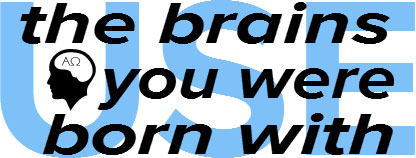It is hardly any wonder that things never seem to improve. How can there be improvement in anything if there are nothing but excuses given and the TRUTH is NEVER even entered into the conversation? Take a look at the article below, there is not one word of truth, other than the statistics, in the entire piece. Look at the idiotic excuses offered by ‘Marybeth Gasman, an education professor at the University of Pennsylvania who directs the Penn Center for Minority Serving Institutions’ (what a job, she makes her living thinking up excuses for the education and parenting establishments):
“And some that are in the single digits. . . . This is problematic and a school must do better by having summer bridge programs, peer-to-peer mentoring, student success centers — all focused on increasing retention and graduation rates.”
“Graduation rates directly correlate with the income of the student body. More low income students — typically, lower graduation rates.”
I am quite sure this woman is not a moron but she sure is a coward. College graduation has little or nothing to do with ‘bridge programs’, ‘mentoring’, ‘success centers’ or ‘income’. College graduation has EVERYTHING to do with qualification for getting into college. If you failed in high school you will certainly fail in college. The real kicker of this story though is not even touched upon. The real story is that the these colleges that cannot graduate even 20 percent of their “students” after six years do not even offer courses of typical high school difficulty and those who do manage to graduate receive a piece of paper that is worth absolutely nothing.
6-year graduation rates at many HBCUs lower than 20 percent
In analyzing federal data for an in-depth examination of the nation’s historically black colleges and universities, the AJC found that the six-year graduation rates at 20 schools were 20 percent or lower in 2015.
This means that four of five beginning freshmen at those schools didn’t earn a degree within six years.
Coming Thursday: The AJC publishes HBCUs: A Threatened Heritage. The special three-part series will examine the problems many of the schools face, the unique role they play in students’ lives, and the perils that lie ahead.
A handful of HBCUs are graduating more than 50 percent of new freshmen within six years. Spelman College in Atlanta, for example, led all HBCUs, with a rate of 76 percent. Others, however, are struggling. Here’s a sampling:
“Yes, there are some HBCUs that have low graduation rates,” said Marybeth Gasman, an education professor at the University of Pennsylvania who directs the Penn Center for Minority Serving Institutions, in an email to the AJC. “And some that are in the single digits. . . . This is problematic and a school must do better by having summer bridge programs, peer-to-peer mentoring, student success centers — all focused on increasing retention and graduation rates.”
Gasman pointed out that some schools with low graduation rates in 2015 already have begun to turn things around.
She also wrote of the connection between grad rates and family income:
“Graduation rates directly correlate with the income of the student body. More low income students — typically, lower graduation rates. Why? Because low-income students don’t have access to the same college prep opportunities and because they don’t have the financial safety nets of middle and upper income students. Please note that institutions that have very few Pell Grant-eligible students typically have very, very high graduation rates.”
Pell Grants are awarded to low-income undergraduate students.
